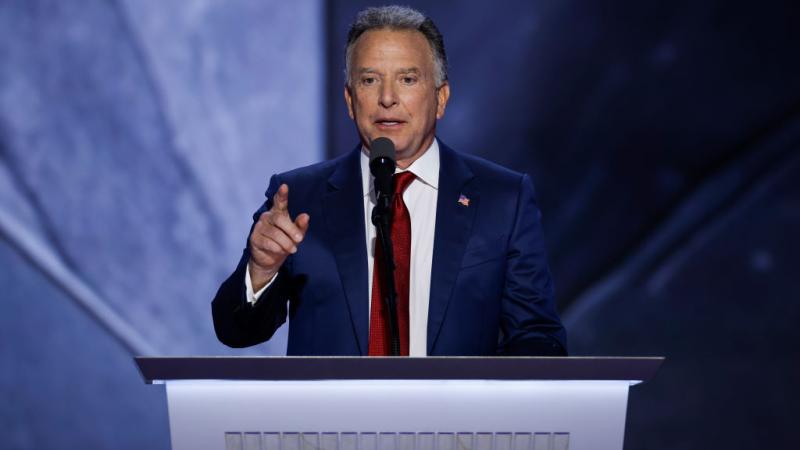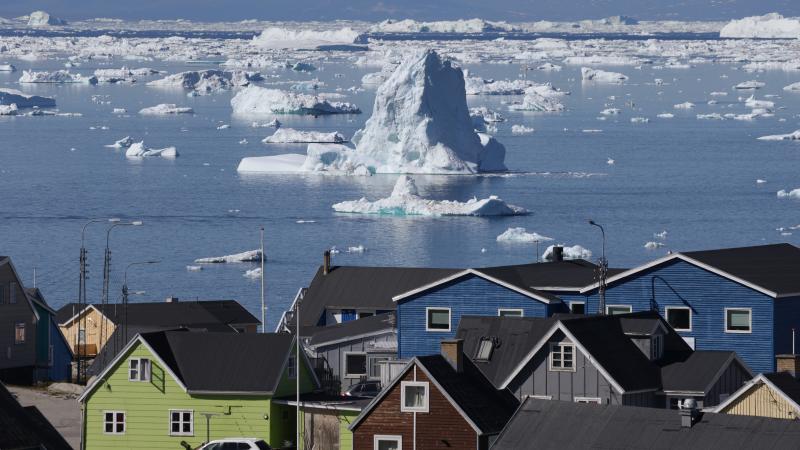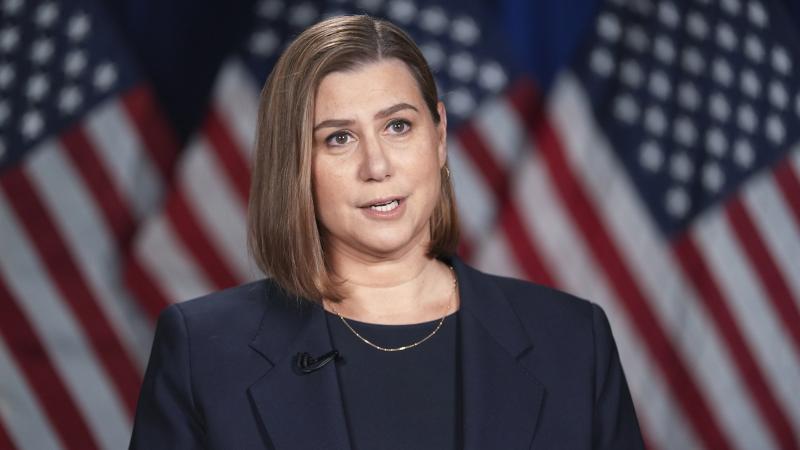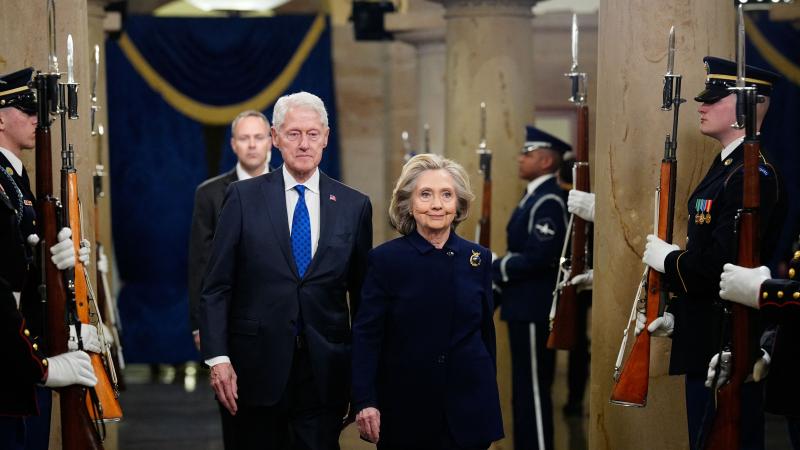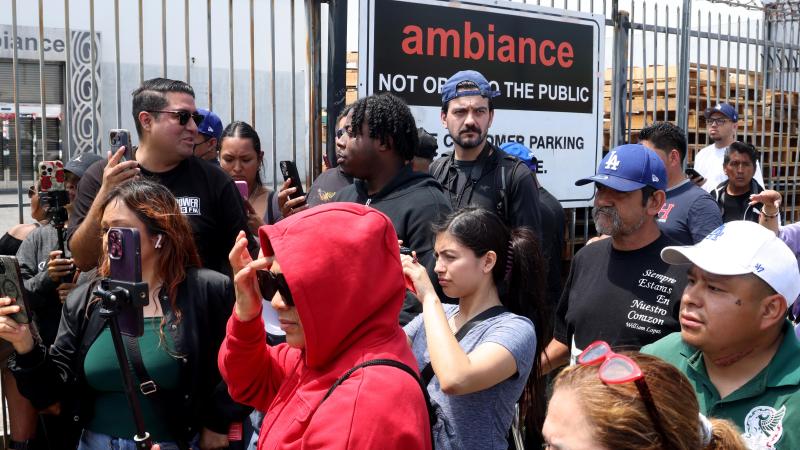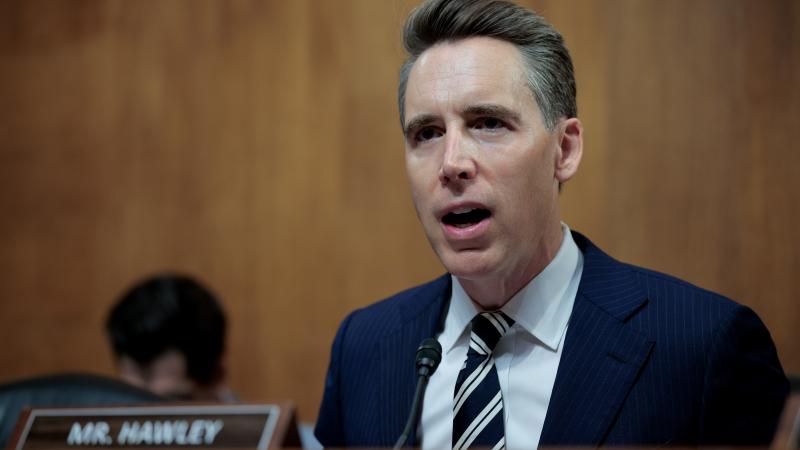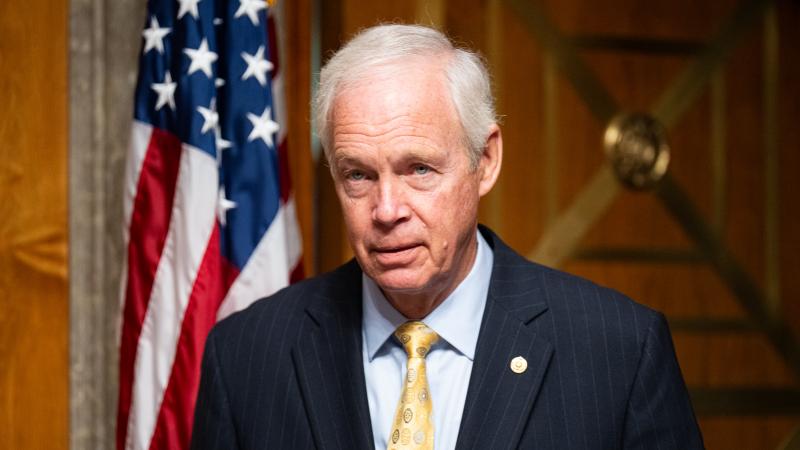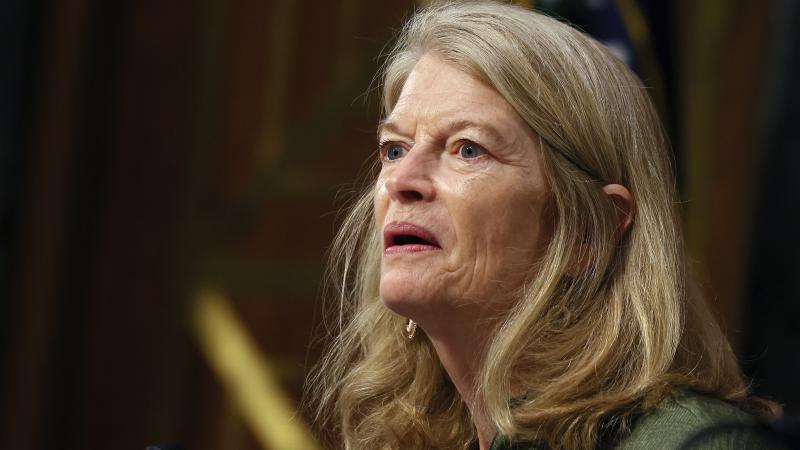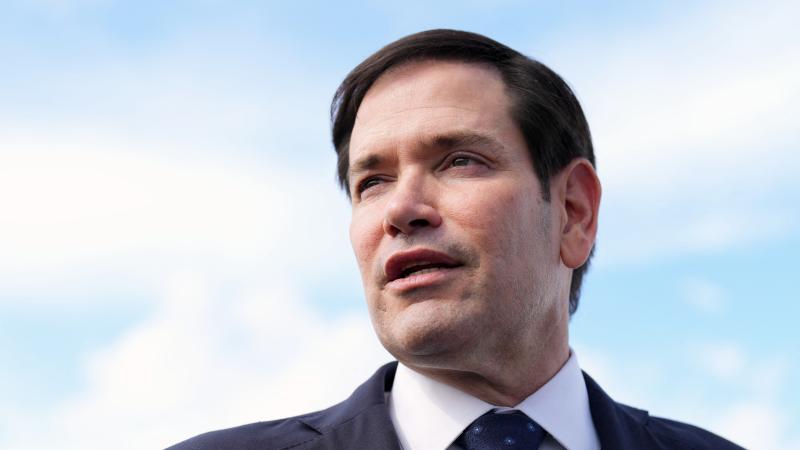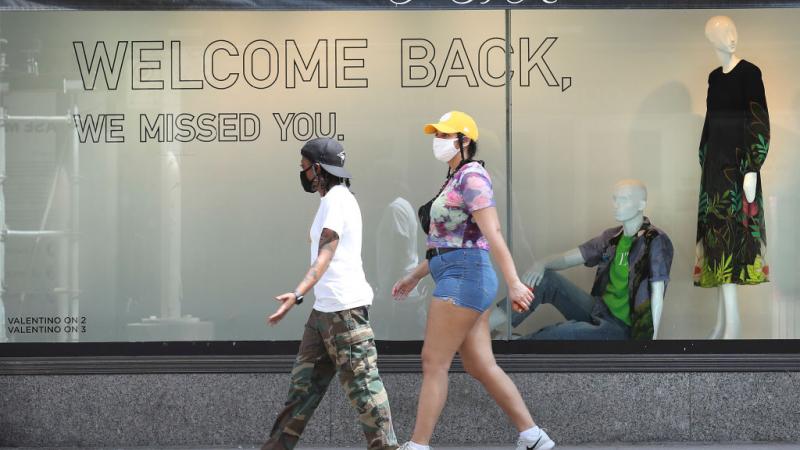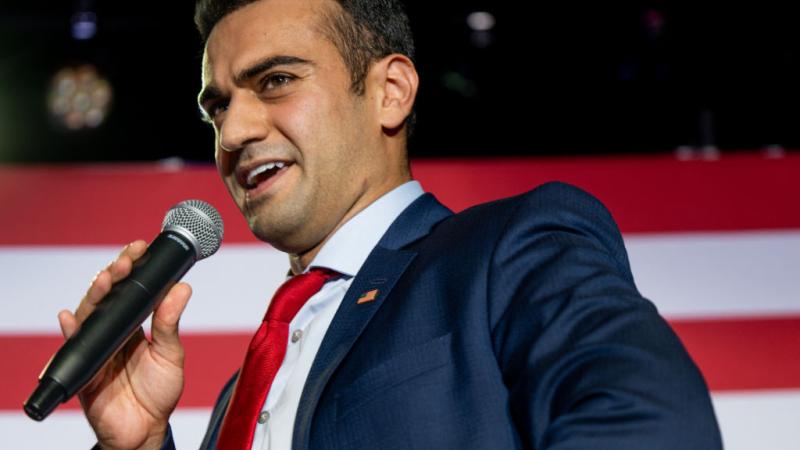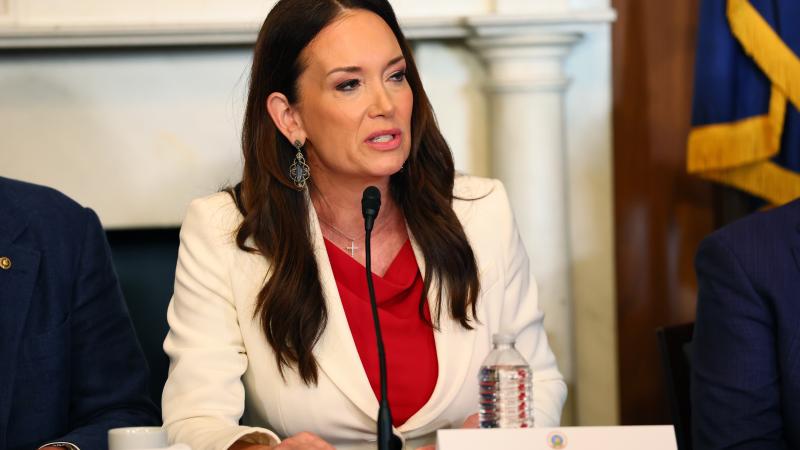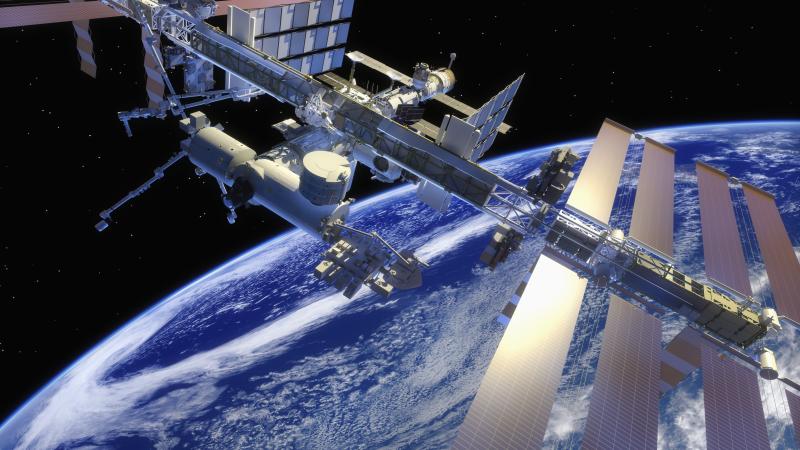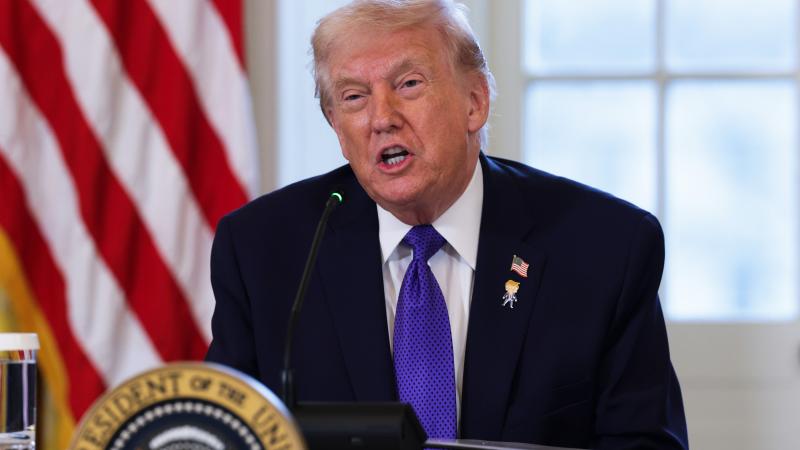Presidential intel board prepping reform options for Trump, with an eye on shrinking DNI
PIAB Chairman Devin Nunes says personal preference is to slim down top intel agency, send more spies outside Washington.
The chairman of the President's Intelligence Advisory Board (PIAB), Devin Nunes, told Just the News that his colleagues are working on intelligence agency reform options for President Donald Trump, and his personal preference is to shrink the top spy agency and disperse more spies and analysts outside Washington.
“Having people in foreign countries for longer durations, in my opinion, is critically important,” Nunes said in a wide-ranging interview on the John Solomon Reports podcast. “And having fewer and fewer people (in DC), whether it's at the FBI or any of the Defense Department agencies. The more people you have in Washington, the worst things will be,” the former California Congressman said.
Nunes confirmed that his board, which provides civilian oversight of America’s 17 spy agencies and gives advice to the president, is preparing reform ideas for Trump.
“The President was clear to me that he wants us on the board and me as the chair, to get the politics out of the intelligence community, which would include, you know, the DOJ, the FBI, CIA and across DOD,” Nunes said.
“So we are looking at several big strategic items, which, of course, I can't talk about on this podcast. But we have a very good board, very involved. So we're looking at the overall strategies across defense and intelligence,” he added. “And then secondarily, you know, the board is used for a quick reaction team that can go in and analyze things on behalf of the President to try to solve problems.”
Not a knock on Gabbard, but DNI has grown "so large and out of control"
Nunes declined to describe any reforms the board is considering, saying they will be conveyed to Trump privately. But he described some of his personal observations and preferences based on his many years in Congress as chairman of the House Intelligence Committee, clearly signaling a desire for a smaller DNI.
“Nothing against Director Gabbard at all, but the DNI has become so large and out of control. And they were the ones who were supposed to clean all this up,” Nunes said. “I was in Congress when the Director of National Intelligence was created. It was supposed to be small and lean and stop this from happening. Instead, it became a massive bureaucracy. So, you know, the reforms have to start at the very top,” he added.
Nunes said he has an additional hope that dates back to his days in Congress: that more spies and analysts will be dispatched out of Washington to the field.
“We always wanted to limit the number of people in Washington, and no matter how hard we opposed the adding of positions, more and more people ended up in Washington D.C. And I spent my whole career trying to figure out, how do you get more intelligence officers overseas, building relationships, learning things,” he said.
Nunes said his goal as board chairman is to “be supportive” of initiatives like “streamlining, de-politicizing, getting people out of Washington and back into the field, where you get Americans who are patriotic, that want to work hard, that want to get out and work on behalf of their country. They don't want to be living in Washington, DC, and if they do, they're probably not the type of people that need to be in those.”
Leaks eroding trust in intelligence operations
Nunes’ comments come as the Trump White House, under acting National Security Adviser Marco Rubio, has vastly shrunk the size of the National Security Council to have it more focused on the president’s agenda. Rubio is doing double-duty as the Secretary of State.
Meanwhile, spy agencies have been hampered by continued leaks of sensitive intelligence ranging from Israeli war plans to early assessments of the U.S. bombing of Iran’s nuclear facilities. Such episodes have eroded some of Trump’s trust in the agencies, and he openly quarrelled with DNI Tulsi Gabbard on how close Tehran was to making nuclear weapons in the days before American B2 bombers destroyed three Iranian nuclear development sites with bunker buster bombs last week.
Last week, CIA Director John Ratcliffe delivered a devastating report disclosing that Obama-era intelligence agencies intentionally distorted intelligence and ignored career officials' objections in writing a now-discredited assessment in 2016 that Vladimir Putin interfered in the 2016 election specifically to help Trump beat Hillary Clinton. That assessment was incorporated into Democratic Party talking points and widely adopted by legacy media.
Ratcliffe identified numerous flaws and revealed the agency’s top two Russian experts directly objected to then-Director John Brennan expressing confidence in the assessment that Putin was trying to help Trump.
Brennan, now a senior national security and intelligence analyst for NBC News and MSNBC, was a signatory to the infamous letter signed by fifty other intelligence officials ahead of the 2020 election, claiming that the news about Hunter Biden's was a "Russian disinformation" operation. As a result, social media platforms and major news organizations censored stories challenging that narrative.
The FBI had possessed Hunter Biden’s abandoned laptop since December 2019 and knew that files cited by the media in its coverage came from a Delaware computer repairman and not the Kremlin — but, after preemptively discrediting the news to Big Tech, "the FBI kept silent publicly as 51 ex-intelligence officials suggested and then-candidate Joe Biden outright alleged that the files came from Russia," The New York Post reported.
Ratcliffe's review "identified multiple specific concerns, including: a higher confidence level than was justified; insufficient exploration of alternative scenarios; lack of transparency on source uncertainty; uneven argumentation; and the inclusion of unsubstantiated Steele Dossier material.”
Nunes: "More information needs to be declassified"
Nunes raised similar concerns seven years ago about the assessment when he was still chairman of House Intelligence. He told Just the News that Ratcliffe’s report was helpful but that he is personally aware of additional intelligence that shows the conduct of the Obama-era spy agencies was even worse than the public knew.
“There's still more information that needs to be declassified,” Nunes said. “I think what Director Ratcliffe did is critically important to get this information out. It's stuff that we already, you know, basically knew," adding that "I do think that there is a lot more. And the question always comes up: how do you hold these people accountable?”
